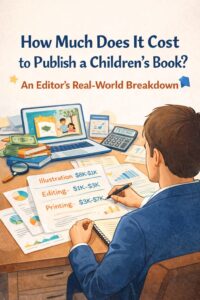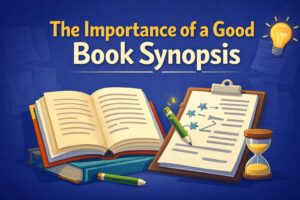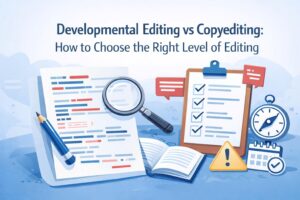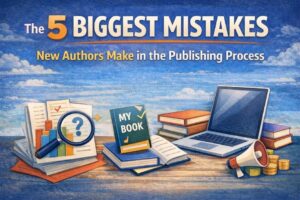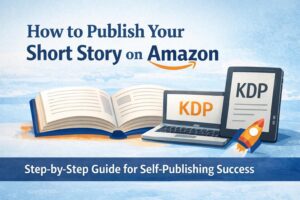From Alexa turning on the lights in our homes to playing lullabies for us to fall asleep, we are getting more and more reliant on technology nowadays.
Just one command and they will do the task in a jiffy. Slowly and gradually, all these bots are replacing human efforts and creativity.
Similarly, the newly introduced AI bots are taking over the writing industry by leaps and bounds. ChatGPT, YouChat, the new AI Bing and Google software, and their other brethren can generate unique, grammatically correct content within seconds.
But can I use AI to write my book?
How about I use AI to write some parts of my book?
Can these human-generated AI bots really replace the unique and creative ideas that pop up in a writer’s mind?
Can i at least use it to come up with some ideas from anywhere between the plot to specific scenes?
Can AI actually create the same amount of magic that someone with first-hand knowledge and experience can express?
If you are sceptical of the answers, keep on reading to clear your doubts.
How advanced is AI as of now?
The possibilities of AI outnumbering its own capabilities are quite high.
But for now, the functions and operations that AI can perform are still somewhat restricted.
Though with AI it is insanely effortless to do tasks that used to take hours prior to its introduction, in our opinion, AI is still unable to beat human-performed levels of precision.
AI vs human writers; who creates the best?
Talking about capabilities.. Yes! AI is able to write grammatically correct, readable content, given that it gets the right prompts and instructions to do so.
However, if one asks whether they should use AI to write a book, we wouldn’t second the idea. There are multiple reasons to support our stance. Let’s have a look at them one by one.
Risk of plagiarism and copyright infringement.
For any publisher, the biggest red flag in a writer would be plagiarism. And let’s be honest, you would not want to destroy your reputation in the market, whether you are debuting or have prior experience in this field.
For now, we know that ChatGPT extracts its information from content over the internet to generate a response; the source material of which is still unknown.
This creates a big risk of copyright infringement and one can possibly get into a lawsuit for such a serious offense.
Since we cannot exactly track the source of the information that we are adding to our book, nor do we know if someone owns the copyright for that information.
Considering that you don’t certainly own the content in your book, the ownership or authorship of the book will always remain to be a question mark.
As of now, there are no proper laws for such issues since we are still at the very beginning of these cases, it is however settled that the ownership regarding AI-generated content is in public dominion.
Lack of emotions and Intuitiveness.
No matter what the genre of the book is, there is always a certain extent of emotions and empathy that is used by the writer in order to resonate with the readers.
When a human writer writes something, their content has a seamless hint of emotion along with the narrative flow. Something that their audience has a sense of relatability with.
One cannot simply expect an AI Chatbot to add this feature to its content.
And before you say, “But if you give an AI writer the prompt to do it, it can add emotions.” Yes, a software like Chat GPT for example can add emotions, the point here was that the emotions seem robotic, and not as authentic as when an experienced writer does it.
This is true to such an extent that people who regularly work with AI writing software, can easily tell whether something is written by an actual human or AI.
What gives it off you ask? It’s boring, it’s obvious, or simply put, the story doesn’t have any life.
Also, context has a huge role in making the content stand out. Human writers have the ability to think outside the box and come up with phrases that tell more than the literal.
The slight gradient that a human writer can create in their narration is almost unachievable while using AI for book writing.
Human writers are more adept at tailoring the content according to their target audience so that they can read between the lines. However, an AI Chatbot is more liable to create content entirely on the basis of certain data and prompts.
Creativity takes a serious hit.
Wordplay and puns play a significant role in making the content interesting and engaging.
The art of manipulating words to create jokes and nuances to different human emotions is something that only human writers can come up with. This keeps the readers entertained and hooked to the very end of the book.
On the other hand, when you write a book with AI, creativity takes a serious hit. The absence of wordplay, quick wit, and that sense of resonance with human emotion gets a little boring for the readers.
The human brain works in magical ways. No wonder AI is a human-constructed tool. Although it can exceed the human brain in speed, the edge of imagination, expression, and innovation still lies within the gray matter.
A human writer can create linguistic patterns with words that apparently seem to be unrelated – a feature that AI bots fail to add to their content. Clever wordplay is certainly a game-changer to create a spark in the minds of the readers.
AI flagging system – a tool for publishers.
Although it seems to be insanely easy to use AI to write a book, the long-term repercussions might not be too appealing.
The book writing task may be a piece of cake using AI, but when you go to a publisher, you will know the real deal. Most of the well-reputed publishers in the market do not entertain AI-generated content.
There is no doubt in saying that AI has changed the game for most professions including medical, finance, IT etc, but it still doesn’t have an edge for creative writing in comparison with humans.
Being in the profession for years, most publishers can easily distinguish between a human-written piece and AI-generated content at a glance.
However, there are also a number of AI detectors that one can use for running an AI check. This may hinder in the way of your book hitting the shelves.
Even if you modify the content that an AI generator creates, your book will still be at risk of being similar to the already present content over the internet.
This would not only discredit you as a writer, but it would also probably get you sued over copyright infringement.
Repetitive content – bored readers!
Since AI content generators rephrase the already existing information on the internet over and over again, the problem of repetitive content would be bothersome for the readers.
Being a writer, the last thing you would want for your career is to lose readers.
As humans, we are always looking for something new be it fashion, technology, or readable material. Bibliophiles and avid readers tend to show less or no interest in something that is repetitive.
It is not a secret that AI is beyond amazing for its scalability. Scalability in the field of content creation refers to the act of creating massive amounts of content while compromising on quality.
Human-generated content takes a lot of time and research but quality surely wins over quantity. Therefore, try to avoid using AI for book writing as it may lose you readership.
Final thoughts.
It is always tempting to use AI for your tasks but it comes with its own repercussions, especially when you are writing a book. Where humans created AI-generating tools, they also created AI detection tools that are just as efficient.
Therefore, in order to maintain your reputation in the market in the eyes of the publishers and to avoid the risk of copyright infringement, plagiarism, and loss of readership, it is better to avoid using AI for book writing.
In our opinion, AI just doesn’t have that oomph to be a good author that would keep the readers hooked to the very end. If you still need assistance to write a book, we suggest you hire a professional – someone with clever wit and fingers!
If you are interested in getting your book written in any genre, feel free to contact us, we offer a range of services starting from book ghostwriting services to self-publishing services for authors.


